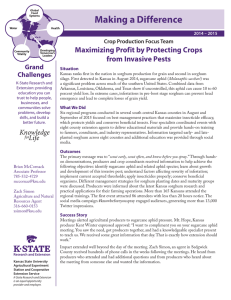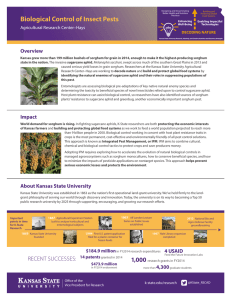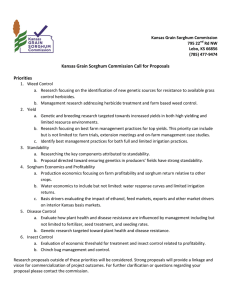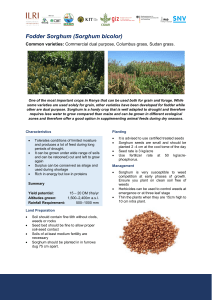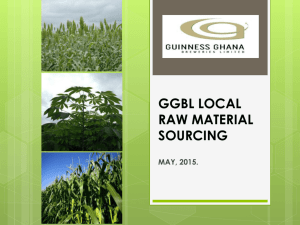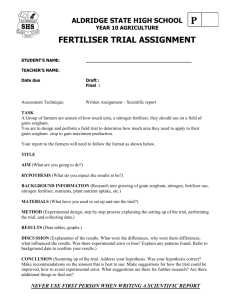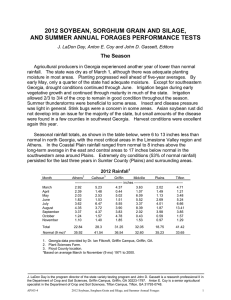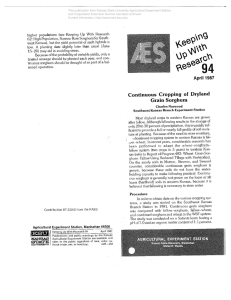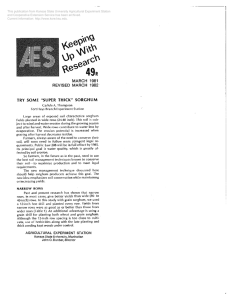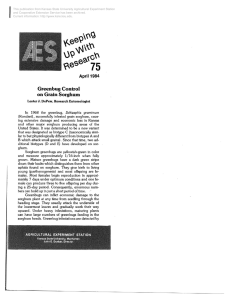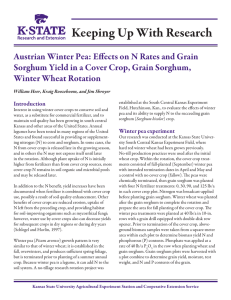Making a Difference Sorghum Schools Teach Production, Protection, Profit Grand
advertisement
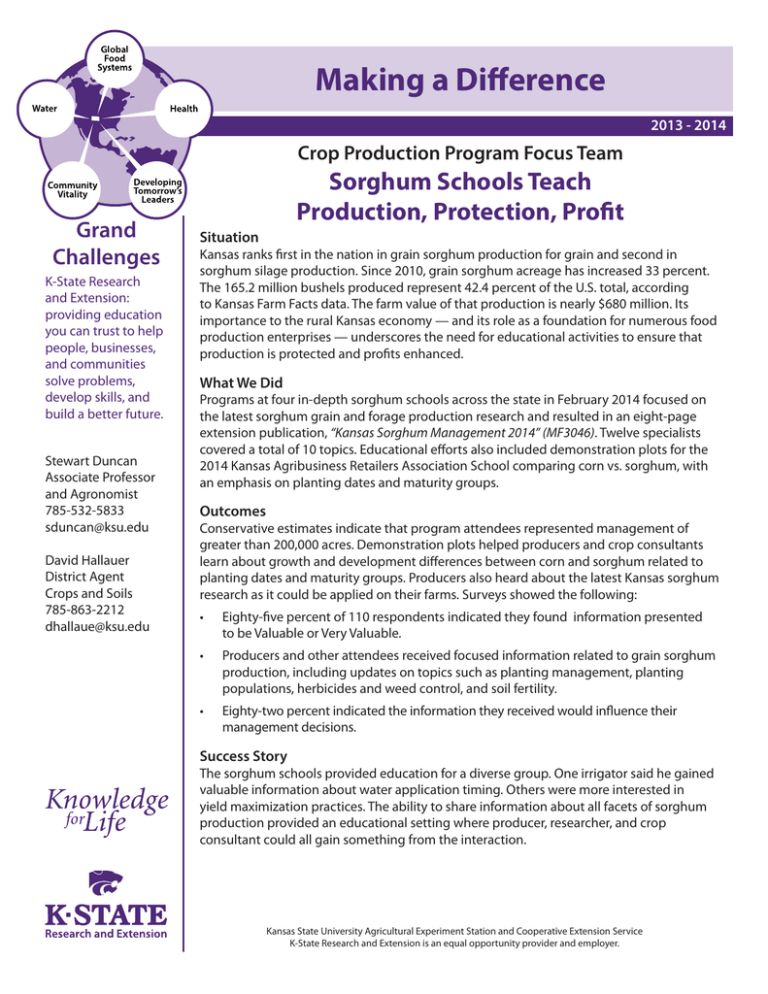
Making a Difference 2013 - 2014 Crop Production Program Focus Team Grand Challenges K-State Research and Extension: providing education you can trust to help people, businesses, and communities solve problems, develop skills, and build a better future. Stewart Duncan Associate Professor and Agronomist 785-532-5833 sduncan@ksu.edu David Hallauer District Agent Crops and Soils 785-863-2212 dhallaue@ksu.edu Sorghum Schools Teach Production, Protection, Profit Situation Kansas ranks first in the nation in grain sorghum production for grain and second in sorghum silage production. Since 2010, grain sorghum acreage has increased 33 percent. The 165.2 million bushels produced represent 42.4 percent of the U.S. total, according to Kansas Farm Facts data. The farm value of that production is nearly $680 million. Its importance to the rural Kansas economy — and its role as a foundation for numerous food production enterprises — underscores the need for educational activities to ensure that production is protected and profits enhanced. What We Did Programs at four in-depth sorghum schools across the state in February 2014 focused on the latest sorghum grain and forage production research and resulted in an eight-page extension publication, “Kansas Sorghum Management 2014” (MF3046). Twelve specialists covered a total of 10 topics. Educational efforts also included demonstration plots for the 2014 Kansas Agribusiness Retailers Association School comparing corn vs. sorghum, with an emphasis on planting dates and maturity groups. Outcomes Conservative estimates indicate that program attendees represented management of greater than 200,000 acres. Demonstration plots helped producers and crop consultants learn about growth and development differences between corn and sorghum related to planting dates and maturity groups. Producers also heard about the latest Kansas sorghum research as it could be applied on their farms. Surveys showed the following: • Eighty-five percent of 110 respondents indicated they found information presented to be Valuable or Very Valuable. • Producers and other attendees received focused information related to grain sorghum production, including updates on topics such as planting management, planting populations, herbicides and weed control, and soil fertility. • Eighty-two percent indicated the information they received would influence their management decisions. Success Story The sorghum schools provided education for a diverse group. One irrigator said he gained valuable information about water application timing. Others were more interested in yield maximization practices. The ability to share information about all facets of sorghum production provided an educational setting where producer, researcher, and crop consultant could all gain something from the interaction. Kansas State University Agricultural Experiment Station and Cooperative Extension Service K-State Research and Extension is an equal opportunity provider and employer.
